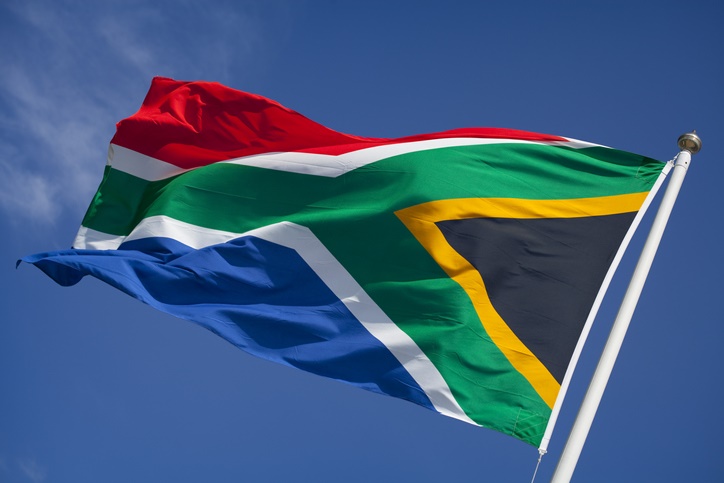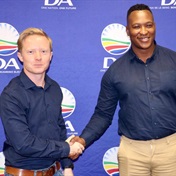
If we are to understand the 1994 moment as being that which facilitated emancipation as opposed to liberation, this helps to set an agenda for change, writes Sumaya Hendricks.
As we mark a decade since Madiba's passing, South Africa is riddled with what feels like intractable challenges. This can be overwhelming and confusing, leading to uncertainty regarding the actions different societal actors should take – particularly civil society. Against this backdrop, the Nelson Mandela Foundation hosted a dialogue titled 'What does this moment call for?' in recognition that, like many other people and organisations, we too were asking ourselves this question.
The dialogue, which was held on 28 March, commenced with opening remarks by Former President Kgalema Motlanthe. The panel discussion that followed featured notable voices, including Wits Professor Tshepo Madlingozi, Nontando Ngamlana, an experienced NGO leader, along with political commentator Aubrey Matshiqi and academic Sithembile Mbete.
When asked about the changes that panellists believed should be realised, Madlingozi called on us to interrogate our motivations. More specifically, why did we want to 'save' democratic South Africa and for whom, when injustice prevails for the majority? Is the project of saving South Africa merely for the benefit of middle-class South Africans to protect our privilege?
Deep-seated systemic issues
To take the questions he posed seriously requires personal reflection and here drawing on another language is useful. In Arabic, 'adl' and 'qist’ are often translated into 'justice' but these two words carry nuances absent in English. The former can be used to describe justice in relation to the self, while the latter in relation to society. Through this lens, there is a differentiation between inward and outward justice. In short, outward manifestations of justice do not equate to a person being inwardly just, as their intention could arise from other imperatives such as political expediency. For instance, if we are truly just, we should be prepared to 'share' even in the absence of a legal mandate to do so. Put differently, and in response to the challenge posed by Madlingozi, we must reflect on whether our change-making is an outward manifestation of our desire for societal justice or a tactic to preserve our privilege.
While we must address day-to-day issues, including potholes and electricity, this must not be at the expense of deep-rooted, systemic issues such as racism and economic inequality. Matshiqi's characterisation of our society as 'anti-black, anti-poor, and anti-women' is insightful, as the antithesis of this would represent a liberated society and should be the primary focus of our endeavours.
READ | Adrian Gore: My view on SA remains unchanged: We need action, not despair
A liberated society, as the ultimate objective, involves transcending emancipation as the final goal. While emancipation is about the formal process of removing legal constraints and the granting of rights to people who previously did not have them, liberation is something more. It is about freeing people from oppression and domination. It acknowledges the need for repairing and restoring through the mediums of redress and redistribution. This distinction can be articulated in different ways.
For instance, Thomas Piketty at the 2015 Nelson Mandela Annual lecture asserted that "equality in formal rights is not sufficient to reach real equality". He gave the example of someone having the right to live anywhere but who lacked the financial means to realise this right. In his opening remarks, Motlanthe also emphasised that despite possessing rights, many people cannot access them under the current system. He portrayed democracy as a destination we must journey towards and that we needed to fight for the kind of democracy we desire.
False assumptions
This is not to dismiss the emancipation that was achieved in 1994, which was necessary, as highlighted by Ngamlana. However, we failed to enter that era with the understanding that a collective vision of transformation still needed to be developed and pursued. As she further noted, we made numerous false assumptions and believed that someone with our best interests at heart would create and maintain that vision for us, which has not been the case.
If we are to understand the 1994 moment as being that which facilitated emancipation as opposed to liberation, this helps to set an agenda for change. Moreover, it means recognising that individual emancipation does not necessarily translate and aggregate into a liberated society.
READ | Leslie van Rooi: Soccer on the 'voorgras' shows the way forward for SA
This necessitates a different set of questions, which centres our collective condition at the heart of any change making. This is because liberation is more about the collective in contrast to emancipation which is more individually focused. Regarding the collective, in line with Mbete's remarks made during the panel discussion, the 'pie' is only so big which therefore necessitates sharing. In apartheid, white people thrived at the expense of everyone else, and as such if we want to all thrive now, this requires a greater degree of sharing. Implementing an agenda for change demands orchestration. It often seems as if we expect the efforts of people and organisations in various spaces to organically culminate into the desired change, rather than intentionally orchestrating it. With that said, working together also does not guarantee effectiveness if the approach is wanting. Consequently, we must reflect on whether our existing organisational structures are sufficient to reach our intended destination. Repurposing existing organisations and creating new ones may be necessary.
Taking the question of "what this moment calls for" seriously requires pushing ourselves to envision and work towards a liberated society where individual well-being is measured by collective prosperity. Madiba knew that his dreams and hopes might not be realised in his lifetime; this lament need not be ours. A liberated society is within our reach if we are prepared to engage in critical conversations and commit to bringing it to fruition.
- Sumaya Hendricks is head of the Dialogue and Advocacy team at the Nelson Mandela Foundation.
*Want to respond to the columnist? Send your letter or article to opinions@news24.com with your name and town or province. You are welcome to also send a profile picture. We encourage a diversity of voices and views in our readers' submissions and reserve the right not to publish any and all submissions received.
Disclaimer: News24 encourages freedom of speech and the expression of diverse views. The views of columnists published on News24 are therefore their own and do not necessarily represent the views of News24.




 Publications
Publications
 Partners
Partners
























